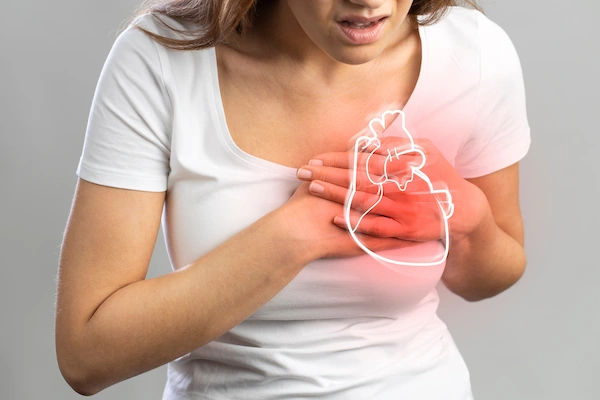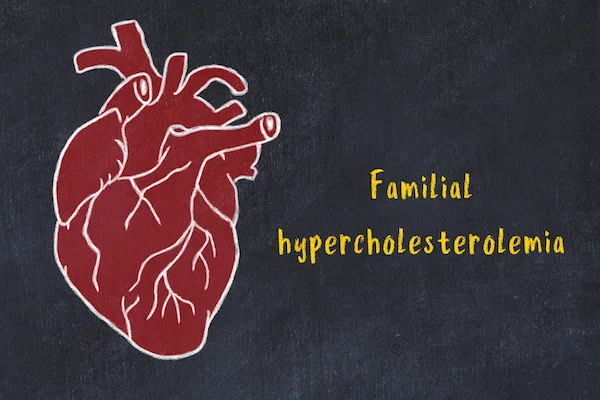- female
- 45 Years
- 29/01/2025
I'm feeling a tightness in my chest and it's like there's a squeezing sensation around my heart. My heart rate seems to be going really fast. I'm obese, about 5'4" and weigh 85 kg. My job is pretty sedentary because I'm at a desk all day, and I've had diabetes for about six months. Should I be worried about these symptoms?
Answered by 1 Apollo Doctors
"Chest tightness and squeezing sensation in the heart, along with a fast heartbeat, can be concerning symptoms, especially with a history of diabetes and obesity. These symptoms could indicate a heart problem and should be evaluated promptly. In this case, the individual may be experiencing a heart attack or angina. It is important to seek immediate medical attention. The individual may be prescribed medications such as aspirin, nitroglycerin, and beta-blockers like Metoprolol to help manage the symptoms and prevent further complications. The dosage and frequency of these medications will depend on the severity of the condition and should be determined by a healthcare professional."
Dr. Ibrahim Suggests...
Consult a Cardiologist
Answered 04/07/2025
0
0

More Cardiology Health Queries
View allI'm experiencing this really rapid heart rate every time I'm about to sleep. I have a 10-day-old infant who wakes up for feedings at night, and when I get up suddenly, my heart races like crazy. I also feel this burning sensation and shortness of breath, almost like I'm missing a heartbeat. There's a bit of pain too. When I left the hospital, my blood pressure was high at 140100, but now it's around 13080 without any BP medication. I'm really worried if it's something serious with my heart or just palpitations. Could this be something I should be concerned about?
Based on your symptoms, it sounds like you may be experiencing palpitations due to stress and anxiety, especially with the added stress of taking care of a newborn. To help manage your symptoms, you can try taking propranolol 10mg twice daily to help with the rapid heart rate and palpitations. Additionally, you can consider taking lorazepam 0.5mg at bedtime to help with anxiety and improve sleep quality. It's important to practice relaxation techniques and ensure you are getting enough rest to support your overall heart health. If your symptoms persist or worsen, please follow up with your healthcare provider for further evaluation.
Answered by 1 Apollo Doctors
I'm really confused about my TMT report. It says the test is negative, but one doctor mentioned it might actually be positive. The cardiologist did an echo test too, and that turned out normal. He said there's nothing to worry about, but I'm still concerned. Could you help me understand if there's anything in the TMT that I should be worried about?
If the report mentions TMT negative, it indicates a normal result where no significant changes were observed during the test. Since your cardiologist also conducted an echo test which came back normal and reassured you that there is nothing to worry about, it is unlikely that there is a cause for concern regarding your TMT results. It is important to follow your cardiologist's advice and continue with any recommended follow-up appointments or tests. If you have any further concerns, please consult with your cardiologist for personalized advice.
Answered by 1 Apollo Doctors
Doctors are suggesting surgery but I'm unsure about the pros and cons. What if bleeding happens again after surgery because of the actilyse injection? What could be the consequences? Are there other options besides surgery, and can this issue be fixed without it? I have an ICD in my heart from an operation three years ago, and now there's a clot again.
Discussing alternatives like anticoagulation adjustments or IVC filters with a cardiologist is key before considering surgery again.
Answered by 1 Apollo Doctors
Disclaimer: Answers on Apollo 247 are not intended to replace your doctor advice. Always seek help of a professional doctor in case of an medical emergency or ailment.




